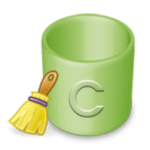Is your Android phone running slow? If so, you’re not alone. Over time, Android phones can slow down for a variety of reasons, such as the accumulation of temporary files, the installation of too many apps, and updates to the operating system. Learn how to speed up your Android phone.
Things you can do to speed up your Android phone. Here are 12 simple tips:

- Restart your phone. This may seem like a simple solution, but it can often be effective. Restarting your phone regularly clears out any temporary files or processes that may be causing it to slow down.
- Check for updates. Make sure that your Android phone is running the latest version of the operating system. Google and other manufacturers regularly release updates that include performance improvements. How to update Android OS on Android?
- Update Apps. Verify all your apps are running the most current version How to make sure an App is running the most current version?.
- Remove unused apps. The more apps you have installed on your phone, the more resources it has to use. If you have apps that you no longer use, uninstall them. You can always reinstall them later if you need them. How to delete or uninstall apps on Android?
- Clear your cache. Apps store temporary files in the cache to improve performance. However, over time, the cache can become cluttered and slow down your phone. To clear the cache, go to Settings > Apps & notifications > See all apps > Select an app > Storage & cache > Clear cache. How to delete cache for apps on Android?
- Disable background apps. Some apps continue to run in the background even when you’re not using them. This can drain your battery and slow down your phone. To disable background apps, go to Settings > Apps & notifications > See all apps > Select an app > Battery > Background restriction > Restrict. How to control background apps on Android?
- Remove any duplicate files that are taking up precious space. How to find and remove duplicate files?
- Use a lightweight launcher. The launcher is the app that controls your home screen and app drawer. Some launchers are more resource-intensive than others. If you’re looking for a lightweight launcher, try Nova Launcher or Pixel Launcher. How to use launchers on Android?
- Use a battery saver. Most Android phones have a built-in battery saver mode that can help to improve performance. To enable battery saver mode, go to Settings > Battery > Battery Saver > Turn on now. How to save battery on Android?
- Move apps to an SD card. If your phone has an SD card, you can move some of your apps to it. This can free up space on your internal storage and improve performance. To move an app to an SD card, go to Settings > Apps & notifications > See all apps > Select an app > Storage & cache > Change storage location > SD card. How to use SD card on Android?
- Reset your phone. If you’ve tried all of the above tips and your phone is still running slow, you may want to consider resetting it to factory settings. This will erase all of your data, so be sure to back up everything important before you do it. To reset your phone to factory settings, go to Settings > System > Advanced > Reset options > Erase all data (factory reset). How to factory reset Android?
- Be sure to do a complete backup of data How to backup an Android tablet? before performing a factory reset since it will wipe out all your data.
- Get a new phone. If you’ve tried all of the above tips and your phone is still running slow, it may be time to get a new one. Android phones are constantly improving, and newer models are typically faster than older models.
Apps to help you clean the data and files to speed up your Android phone or tablet:
How to download apps to Android?
| App | Features | Price |
|---|---|---|
| Files by Google | Frees up space by deleting junk files, temporary files, and unused apps; Suggests files to delete based on usage; Moves files to the cloud to save space; Shares files with others easily | Free |
| CCleaner | Cleans junk files, cache files, and cookies; Uninstalls unused apps; Monitors device performance; Boasts a simple and user-friendly interface | Free, with in-app purchases for premium features |
| SD Maid | Deep cleans the system by removing temporary files, unused apps, and duplicate files; Analyzes app impact on device performance; Offers a variety of customization options | Free, with in-app purchases for premium features |
| Norton Clean | Removes junk files, app cache, and temporary files; Frees up RAM; Monitors device performance; Offers real-time protection against viruses and malware | Free, with in-app purchases for premium features |
| Avast Cleanup | Cleans junk files, cache files, and cookies; Uninstalls unused apps; Monitors battery life and data usage; Offers real-time protection against viruses and malware | Free, with in-app purchases for premium features |
Overall, all of these apps offer a variety of features to help you clean your Android device and improve its performance. The best app for you will depend on your individual needs and preferences.
Here are some additional factors to consider when choosing an app to clean files on Android:
- Features: Consider the features that are important to you. Do you need an app that can clean junk files, cache files, and cookies? Do you need an app that can uninstall unused apps? Do you need an app that can monitor device performance?
- Price: Some apps are free, while others require a subscription or in-app purchases. Consider how much you are willing to spend on an app to clean files on Android.
- Ease of use: Choose an app that is easy to use and navigate.
- User reviews: Read reviews of different apps to see what other users have to say. This can help you to choose an app that is reliable and effective.
Keep your Android phone running smoothly and fast over time:
- Avoid overloading your phone. Don’t try to run too many apps at the same time. If you’re not using an app, close it.
- Be careful about what apps you install. Only install apps from trusted sources.
- Keep your phone clean. Wipe down your phone regularly to remove dust and grime.
- Avoid extreme temperatures. Don’t leave your phone in hot or cold environments for extended periods of time.
Frequently asked questions and answers for speeding up your Android phone:
Q: Why is my Android phone slow?
A: There are a number of reasons why your Android phone may be slow. Some common reasons include:
- Too many apps installed: The more apps you have installed on your phone, the more resources it has to use. This can lead to slower performance, especially if you have a lot of apps running in the background.
- Low storage space: If your phone is running low on storage space, it can also slow down. This is because your phone needs to have enough free space to store temporary files and other data.
- Outdated software: If your phone is running an outdated version of Android, it may not be as fast as it could be. Google and other manufacturers regularly release updates that include performance improvements.
- Hardware limitations: If your phone has older or less powerful hardware, it may not be able to keep up with the latest demands of Android apps and games.
Q: What can I do if my phone is still slow after trying all of the above tips?
A: If you’ve tried all of the above tips and your phone is still slow, it may be time to get a new one. Android phones are constantly improving, and newer models are typically faster than older models.
If you follow these tips, you should be able to speed up your Android phone and get it running like new again.
If your Android phone or tablet is freezing up or crashing – How to fix a frozen phone?



